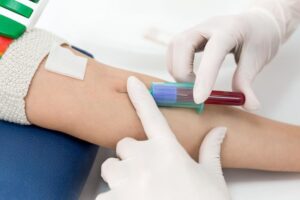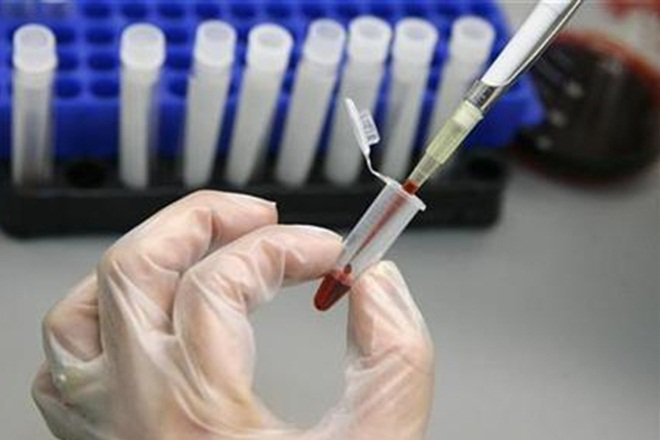The ACTH stimulation test involves administering a quantity of synthetic ACTH (clinical synthetic ACTH) into the body to assess the adrenal gland’s response to ACTH. Based on this, it evaluates whether the cause of a condition originates from the adrenal gland or is due to a deficiency of adrenocorticotropic hormone. The ACTH stimulation test is also the gold standard for diagnosing difficult-to-diagnose adrenal hyperplasia.
1. What is ACTH?
- ACTH (Adrenocorticotropic Hormone), also known as corticotropin, is a hormone produced by the anterior pituitary gland.
- Human ACTH is a polypeptide chain of 39 amino acids, in which the first peptide segment consists of 24 identical amino acids found in many animal species and humans, while the remaining peptide segment has no biological activity and varies among different animal species. The synthetic ACTH used clinically consists only of 24 amino acids.
- ACTH stimulates the adrenal cortex cells to secrete carbohydrate metabolism hormones (corticosterone, cortisol) and stimulates melanin production (due to ACTH’s structural similarity to MSH, which can explain the cause of skin pigmentation in Addison’s disease).
2. How is the ACTH stimulation test conducted?
2.1 The test will be performed as follows:
- Collect 1 venous blood sample.
- Inject ACTH (intramuscular injection, synthetic ACTH).
- Collect additional venous blood samples after 30 minutes or 60 minutes or at both of the above time points (depending on the amount of ACTH injected).
2.2 Tests performed during the stimulation test
- Quantification of ACTH: usually performed before conducting the test.
- With blood samples taken during the test: Quantification of Cortisol, Aldosterone, 17OH-progesterone (depending on the diagnostic purpose).
- Along with blood tests, measurement of cortisol and 17-ketosteroids in urine may also be performed (24-hour urine sample).
3. How should the patient prepare for the ACTH stimulation test?
- It is necessary to limit physical activity and consume foods high in carbohydrates (starchy foods, sugars) for about 12 to 24 hours before conducting the test.
- Fasting for 6 hours may be required before performing the test.
- Temporarily discontinue any medications (such as hydrocortisone) that may affect blood cortisol tests.
- It is advisable to be aware of some information: Blood sampling/injection may cause mild/moderate pain. Some individuals may feel flushed, anxious, or nauseous after the ACTH injection. If testing with a 24-hour urine sample, it is essential to collect the entire volume of urine (since the test result will be measured in liters multiplied by urine volume, and the concentration of the substance to be tested in urine may vary at different times).

4. When is it necessary to perform the ACTH stimulation test?
5. Evaluating test results
- Adrenal cortex function is normal if cortisol levels increase after ACTH injection.
- Adrenal cortex insufficiency: Cortisol levels do not increase after ACTH injection.
- In diagnosing congenital adrenal hyperplasia, baseline 17OH-progesterone levels (blood sample before ACTH injection) and at 60 minutes will be used to assess the severity of the condition.

